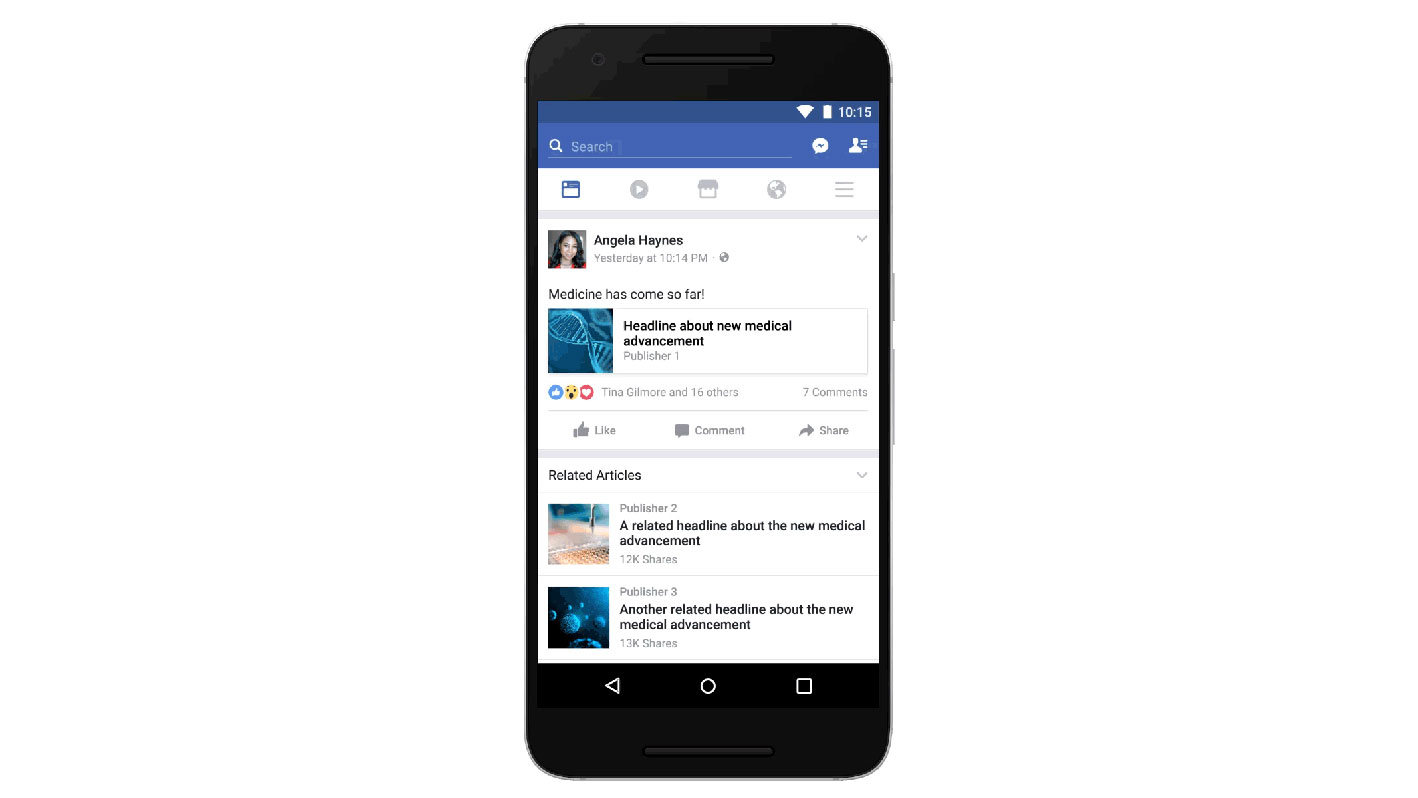Facebook combats ‘fake news’ with improved Related Articles
Get a better idea of what you’re looking at

The age old adage of ‘don’t believe everything you read on the internet’ doesn’t seem to have worked its way around to everyone, and now we’re in a world where there’s such a thing as ‘fake news’. Today, Facebook has announced that it is taking further steps to combat people being misled on the social media platform.
It is extending the Related Articles feature to articles before the user clicks on them, allowing them to see similar pieces. This is a departure from the current use of Related Articles, where the suggested stories appear after you have finished reading so that you can gain more information.
The reason that this feature has been extended is because Facebook got the feedback that in its previous iteration it helped people to determine whether the information they are reading is misleading or false. So the thinking goes, if you see something is misleading before you read it, you may not get misled. Makes sense.
In addition to this, Facebook announced that: “we will start using updated machine learning to detect more potential hoaxes to send to third-party fact checkers. If an article has been reviewed by fact checkers, we may show the fact checking stories below the original post.”
Arbiters of the truth
As one of the largest social media platforms on the planet, Facebook has a responsibility to its users to make sure that they are safeguarded, but gets into a difficult situation if they start dictating what content is classified as ‘fake’. This is why the third-party organizations used for fact checking are important.
Facebook’s News Feed integrity product manager Tessa Lyons said to TechCrunch: “We don’t want to be and are not the arbiters of the truth. The fact checkers can give the signal of whether a story is true or false.”
This isn’t the first time that it has used external fact checkers to try and combat misleading content. Last year it announced that it would be working with noted debunking sites Snopes and Politico among others to try and help users. It is interesting to see the efforts being made to inform users that news isn’t genuine before they read it.
Get daily insight, inspiration and deals in your inbox
Sign up for breaking news, reviews, opinion, top tech deals, and more.
The feature is rolling out in the US, Germany, France, and Netherlands now, and we have contacted Facebook to see if there is a plan for a global rollout on the horizon.
- Want to know more about the efforts companies are making to combat fake news? Check out: Fighting fake news: how Google, Facebook and others are trying to stop it
Andrew London is a writer at Velocity Partners. Prior to Velocity Partners, he was a staff writer at Future plc.
